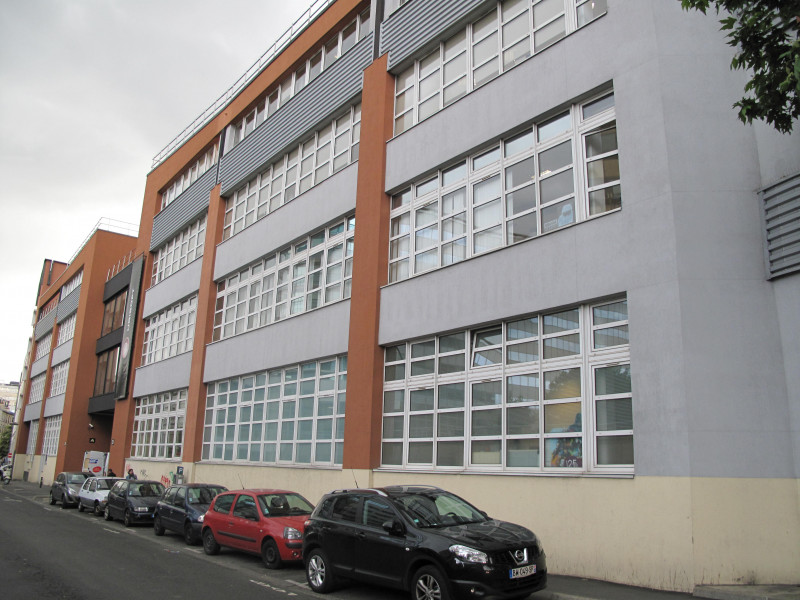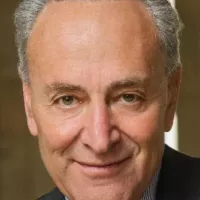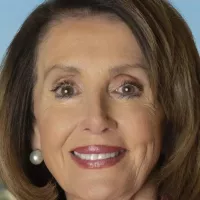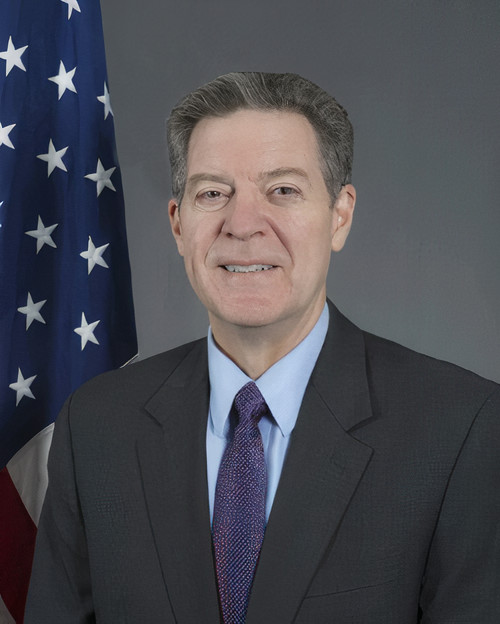Life is full of challenges, and Sam Brownback faced many. Discover key struggles and how they were overcome.
Sam Brownback is an American politician and diplomat. He served as a U.S. Senator for Kansas from 1996 to 2011 and as the Governor of Kansas from 2011 to 2018. As a Republican, Brownback ran for President in 2008. He also served as the U.S. Ambassador-at-Large for International Religious Freedom under President Donald Trump. His career reflects a blend of domestic policy focus as Governor and Senator, with an emphasis on religious freedom on the international stage.
September 3, 1997: Deposition Regarding Campaign Finance Activities
On September 3, 1997, Meredith O'Rourke, an employee of Triad Management Services, was deposed regarding her activities related to fund raising and advertising for Brownback, with claims that Triad circumvented campaign finance laws.
April 2012: Brownback Approval Rating at 34 Percent
In April 2012, a Survey USA Poll indicated that Sam Brownback's approval rating was 34 percent.
January 2013: Tax Cuts Take Effect
In January 2013, tax cuts that were later repealed took effect. They were repealed by the Kansas Legislature overriding Brownback's veto in June 6, 2017.
June 2014: Kansas Falls Short of Projected Tax Collections
As of June 2014, Kansas had fallen far short of projected tax collections, receiving $369 million instead of the planned-for $651 million as a result of Brownback's tax cuts.
August 2014: S&P Downgrades Kansas' Credit Rating
In August 2014, S&P Ratings downgraded Kansas' credit rating from AA+ to AA due to a budget that analysts described as structurally unbalanced as a consequence of Brownback's tax cuts.
2014: Budget Shortfall Expected
A forecast from the Legislature's research staff indicated that a budget shortfall would emerge by 2014 due to Brownback's tax cuts.
November 2015: Brownback's Approval Rating the Lowest Among US Governors
In November 2015, a Morning Consult poll revealed that Sam Brownback had an approval rating of 26 percent, making it the lowest among all governors in the United States at that time.
September 2016: Brownback Ranked Nation's Least Popular Governor
In September 2016, a poll showed that Sam Brownback had an approval rating of 23%, ranking him as the nation's least-popular governor.
February 2017: Kansas Faces Budget Shortfall and Credit Downgrade
In February 2017, Kansas faced a $350 million budget shortfall. Also in February 2017, S&P downgraded Kansas' credit rating to AA−.
February 2017: Bi-Partisan Coalition Presents Bill to Repeal Tax Overhaul
In February 2017, a bi-partisan coalition presented a bill to repeal most of Brownback's tax overhaul to make up for the budget shortfall.
June 6, 2017: Brownback Vetoes SB 30, Overridden by Legislature
On June 6, 2017, Senate Bill 30 was sent to Sam Brownback for signature, but he vetoed the bill. Later in the day both the House and Senate voted to override the veto, effectively repealing most of the tax cuts which had taken effect in January 2013.
June 2017: Brownback's Tax Overhaul Described as Aggressive Experiment
In a June 2017 article in The Atlantic, Brownback's tax overhaul was described as the United States' "most aggressive experiment in conservative economic policy" which "threatened the viability of schools and infrastructure" in Kansas.
2017: Tech Job Loss Period Begins
During the period between 2017 and 2018, Kansas experienced a net loss of 220 jobs, according to a 2019 report.
2017: Criticism of the Brownback Experiment
In 2017, Heidi Holliday, executive director of the Kansas Center for Economic Growth, stated that "The Brownback experiment didn't work. We saw that loud and clear."
2017: Kansas Legislature Overrides Brownback's Vetoes to Repeal Tax Cuts
In 2017, after a protracted battle, the new Kansas Legislature overrode Brownback's vetoes, voting to repeal his tax cuts and enact tax increases.
July 2018: Forecasted Budget Shortfall
A forecast indicated that a budget shortfall will emerge by 2014 and will grow to nearly US$2.5 billion by July 2018 due to income tax cuts signed into law.
2018: Kansas Farm Bankruptcy Rate Increase
By 2018, the last year of the Brownback administration, Kansas had the second-highest farm-bankruptcy rate increase in the nation (after New York) — a decade-high rate for the state.
2018: Tech Job Loss Period Ends
During the period between 2017 and 2018, Kansas experienced a net loss of 220 jobs, according to a 2019 report.
2018: Brownback Leaves Office with Low Approval
In 2018, Sam Brownback, who had a 66% disapproval rating after the repeal of his signature law, left office as one of the least popular governors in the country.
2019: Report on Kansas Tech Job Growth
A 2019 report from the KC Tech Council indicated that Kansas growth in tech jobs ranked next-to-last in the nation, with a net loss of 220 jobs between 2017 and 2018.
Mentioned in this timeline

Donald John Trump is an American politician media personality and...
The United States of America is a federal republic located...

George W Bush served as the rd President of the...

The White House located at Pennsylvania Avenue NW in Washington...

Ronald Reagan the th U S President - was a...
The Affordable Care Act ACA also known as Obamacare is...
Trending

3 minutes ago Shubman Gill injured during India vs South Africa test, taken to hospital.
3 minutes ago Large Police Response Causes Traffic Backup During Rush Hour in West Suburbs

22 days ago Assassin's Creed Shadows Confirmed for Nintendo Switch 2 with December 2 Release
3 minutes ago Sacramento Braces for More Rain, Heavy Winds, and Potential Flooding This Weekend.

6 months ago Jordyn Woods supports Karl-Anthony Towns in Knicks playoffs, stunning in custom outfit.
Dairy Queen DQ is an American multinational fast food chain established in with its headquarters in Bloomington Minnesota The first...
Popular

Chuck Schumer is the senior United States Senator from New...

Bernie Sanders is a prominent American politician currently serving as...

Candace Owens is an American political commentator and author known...

Nancy Pelosi is a prominent American politician notably serving as...

XXXTentacion born Jahseh Dwayne Ricardo Onfroy was a controversial yet...
Nicholas J Fuentes is a far-right political commentator and activist...
